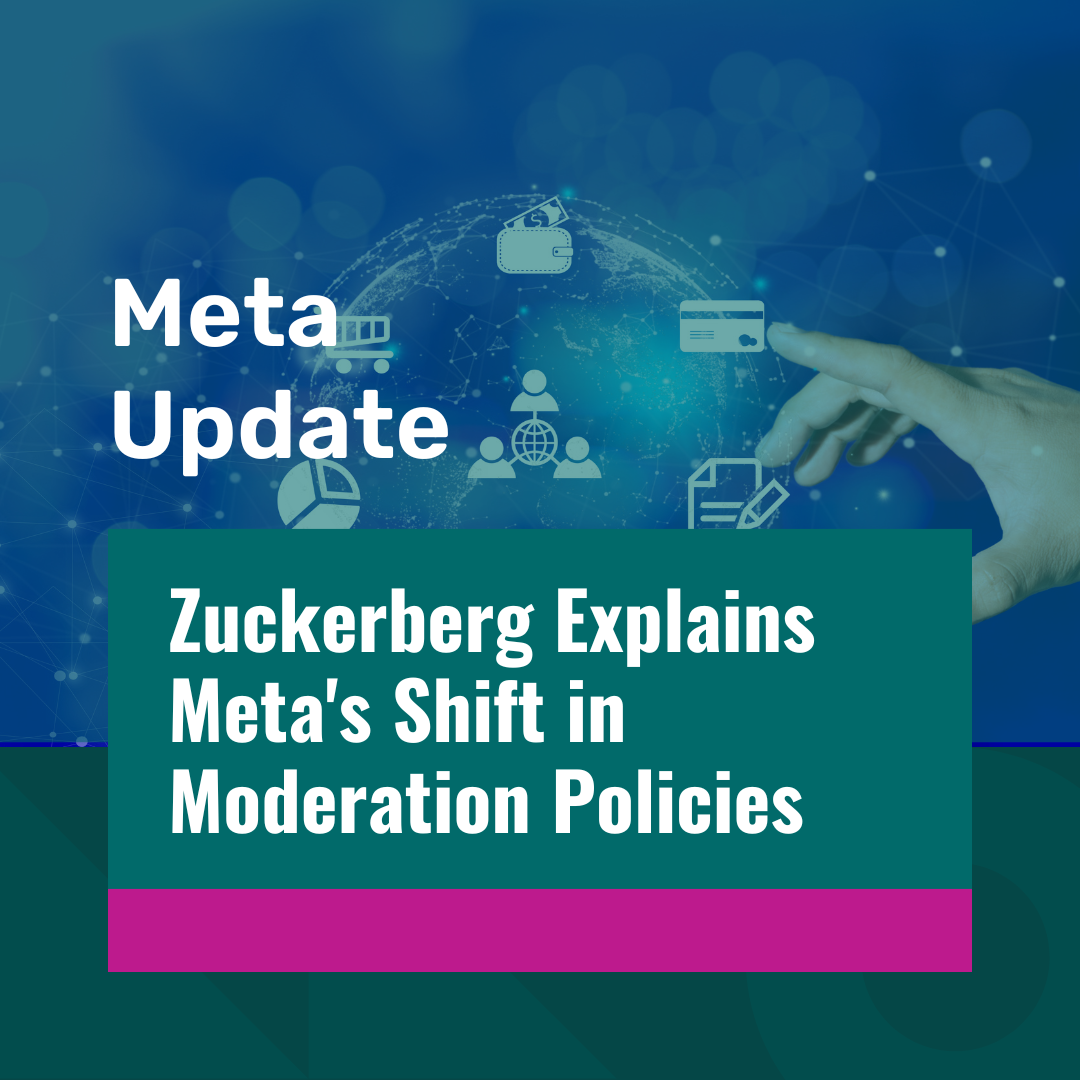Zuckerberg Explains Meta's Shift in Moderation Policies
So, let’s talk about Meta’s big move. If you’ve been following the buzz, you’ve probably seen some heat coming Meta’s way—especially toward CEO Mark Zuckerberg. The decision to scrap fact-checking in favor of a “Community Notes” style model for content moderation? Yeah, it’s got people talking. But now, Zuckerberg’s jumping in on Threads to explain what’s really going on and what he hopes to accomplish with this change.
Let’s break it down because while Zuckerberg’s comments give us some answers, the parts he leaves out might be just as telling.
Why is Meta Doing This?
Zuckerberg claims this all comes down to giving people what they want. According to him, after years of folks saying they didn’t want political content flooding their Facebook and Instagram feeds, users are now asking for more civic and political discussions. Sounds like a total 180, right?
Here’s what he said:
“People want to be able to discuss civic topics and make arguments that are in the mainstream of political discourse, etc. Some people may leave our platforms for virtue signaling, but I think the vast majority and many new users will find that these changes make the products better.”
Wait… what? Didn’t Meta spend years moving away from politics? Just a few years ago, Zuckerberg himself said users were tired of all the political noise. Back in 2021, he shared that people didn’t want politics and constant fighting to take over their feeds. In fact, that feedback shaped Meta’s big push to minimize “civic” content. They even bragged about reducing news and politics to just 3% of Facebook’s activity. It seemed like a win for everyone.
Now, fast forward to 2024, and Zuckerberg is singing a totally different tune. He’s calling the recent U.S. election a “cultural tipping point” where people want to prioritize free speech again. In other words, Meta is pivoting back to more political discussions, fewer restrictions, and less moderation. Oh, and as a bonus, publishers might start seeing their content gain traction on Facebook again. Great for referral traffic, but… is this really what users want?
The Concerns with Community Notes
Part of this new approach involves Meta rolling out its version of “Community Notes,” similar to what X (formerly Twitter) has been doing. In theory, Community Notes allow users to flag and clarify misleading or false information. Sounds great, right? The problem is, this system has some major flaws.
For starters, Community Notes on X require cross-political agreement for a note to be approved. In today’s hyper-polarized climate, getting people with opposing views to agree on anything—let alone a fact-check—is almost impossible. As a result, a lot of harmful or misleading content never gets flagged. And on top of that, there have been reports of groups gaming the system to suppress certain viewpoints.
If X is struggling with these issues at its scale, how will Meta fare when managing billions of users across the globe? It’s a massive challenge, and relying on Community Notes alone feels more like a Band-Aid than a real solution.
The Bigger Picture
Zuckerberg says this is about dialing back over-aggressive censorship. He pointed out that even if just 1% of content gets taken down by mistake, that still affects millions of users. His solution? Mistakenly ban fewer people. Makes sense, right? Well, not entirely.
Let’s flip that logic. If 1% of harmful content slips through the cracks, millions of people will also be exposed to it. Misinformation, conspiracy theories, outright lies—it’s all going to spread further if Meta takes a step back from strict moderation. And with a political landscape as charged as it is right now, this decision couldn’t come at a more questionable time.
What’s Really Going On?
Here’s the part that’s raising eyebrows. Meta spent years moving away from politics, and it seemed like a smart move. So why the sudden reversal? Some analysts suspect this has less to do with user demand and more to do with political pressure. After a dinner with Trump, Meta’s stance appears to have shifted. Coincidence? Maybe. But it’s hard not to wonder if threats of regulatory pressure from certain political figures have influenced this new direction.
What Does This Mean for You?
If you’re a publisher or content creator, this shift could mean more exposure for your posts, especially if you focus on civic or political topics. Zuckerberg says Meta will start recommending this kind of content again, which could drive more engagement. But for everyday users, the jury’s still out. Will more political content lead to better discussions, or are we just opening the floodgates for misinformation and online spats? Only time will tell.
For now, it’s clear that Meta’s moderation policies are entering a new era. Whether that’s a step forward or backward depends on how well this plays out—and how users respond. One thing’s for sure: it’s going to be an interesting ride.
Hey there I’m Kylie Simao, owner of a boutique social media marketing agency dedicated to helping new, local and small businesses who want to promote themselves online using social media.




